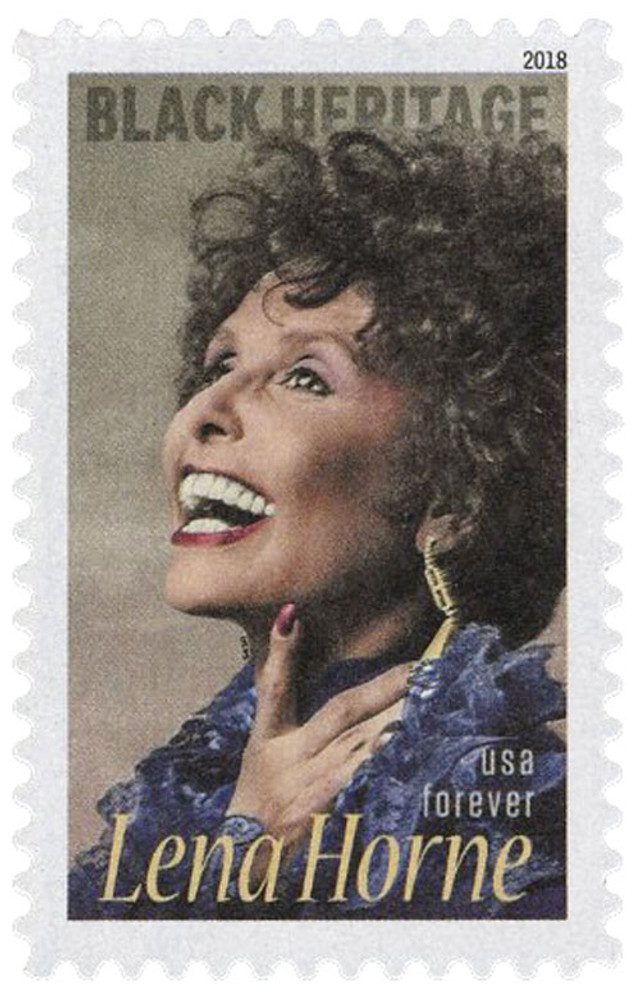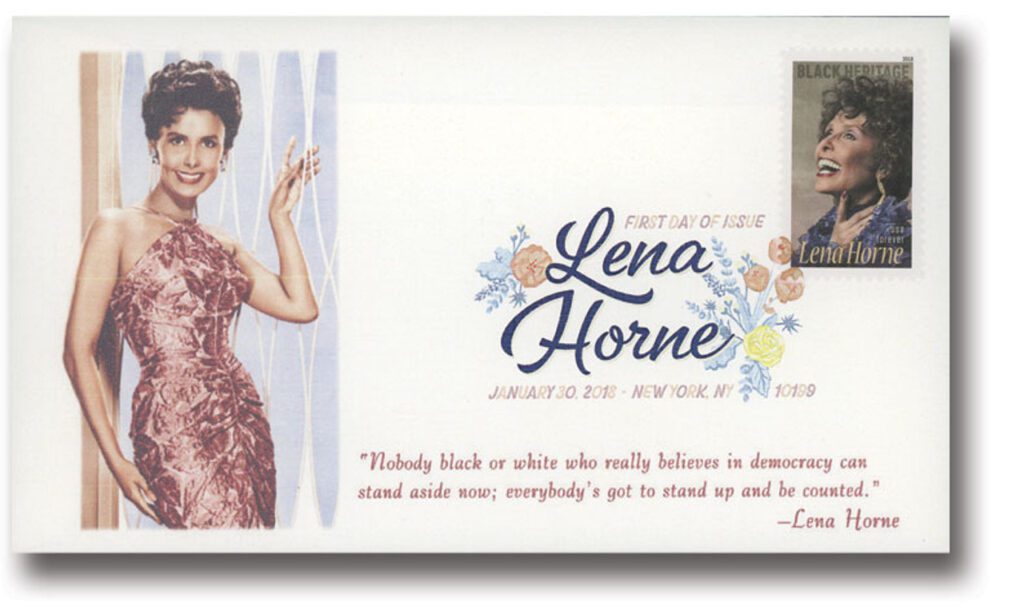Lena Mary Calhoun Horne was born on June 30, 1917, in New York City, New York. Horne was one of the great icons of the 20th century. She spent over 70 years in the entertainment industry as an actress and jazz singer and was also an acclaimed civil rights activist.
Horne spent much of her childhood with her grandparents, as her parents, an actress and a hotel owner, were rarely home. She spent some time in Georgia and traveled with her mother over the years.
Horne left school before graduating and spent five years in Pittsburgh with her father, studying music with Billy Strayhorn and Bill Eckstine. Some of her first performances were as a 16-year-old chorus liner at the Cotton Club in New York City. There she met Adelaide Hall, who became a mentor to the young performer. She first appeared on screen as a dancer in Cab Calloway’s Jitterbug Party (1935). Horne then toured with Noble Sissie’s Orchestra, making her first musical recordings.
Horne went on to tour with Charlie Barnet’s band, perform at Café Society, and briefly be the featured vocalist on the radio program The Chamber Music Society of Lower Basin Street. Horne was then hired to perform at a club on the Sunset Strip in Hollywood. After that, her singing and acting career began to grow. Horne was cast in several smaller movies before signing a contract with MGM in 1942. She made her debut in the film Panama Hattie, where she became famous for the song “Stormy Weather.”
Horne performed in several musicals, including Cabin in the Sky (1943) and Ziegfeld Follies (1946). She didn’t receive many leading roles because of her race – some theaters wouldn’t show movies with Black performers, so her scenes would be edited out. As a result, he appearances in most films of the time were stand-alone scenes in which she performed by herself. In spite of these issues, she was the first African American performer to serve on the board of directors of the Screen Actors Guild.
Horne appeared in a few more films during her career, including Duchess of Idaho (1950), Meet Me in Las Vegas (1956), Death of a Gunfighter (1969), and The Wiz (1978). However, she was unhappy with the state of Hollywood and focused on performing in nightclubs. She quickly became one of the most in-demand nightclub performers of the time, performing in the US, Canada, and Europe. Her 1957 live recording, Lena Horne at the Waldorf-Astoria was the best-selling record by a female artist ever for the RCA Victor label. The following year, she became the first Black woman nominated for a Tony Award for her performance in Jamaica.

Horne also made numerous TV appearances, including Kraft Music Hall, The Ed Sullivan Show, The Dean Martin Show, The Bell Telephone Hour, The Judy Garland Show, The Hollywood Palace, The Andy Williams Show, The Flip Wilson Show, The Muppet Show, Sesame Street, Sanford and Son, and more. She also had a few specials of her own for the BBC and US TV. Horne also appeared in all 333 performances of Lena Horne: The Lady and Her Music, for which she earned the record for longest-running solo performance on Broadway. During five decades of performing, she was given three Grammy awards, a Special Tony Award, a Drama Desk Award, and a Kennedy Center Honor.

Horne faced discrimination throughout her career, but refused to accept roles that portrayed African Americans in a demeaning way. She spoke against discrimination of Japanese Americans after World War II, worked with First Lady Eleanor Roosevelt to pass anti-lynching legislation, performed at civil rights rallies during the 1960s, and took part in the historic 1963 March on Washington. For her dedication to racial equality, Horne’s name is inscribed on the International Civil Rights Walk of Fame at the Martin Luther King Jr. National Historic Site.
Horne died from congestive heart failure on May 9, 2010. A stage in Brooklyn’s Prospect Park and a Broadway theater have been named in Horne’s honor.
| FREE printable This Day in History album pages Download a PDF of today’s article. Get a binder or other supplies to create your This Day in History album. |
Discover what else happened on This Day in History.




Thank you for the information. She accomplished alot even though she was discriminated. She worked with the President for other Black people for equality. She was gifted and determined!
What a Lady!
DITTO!!